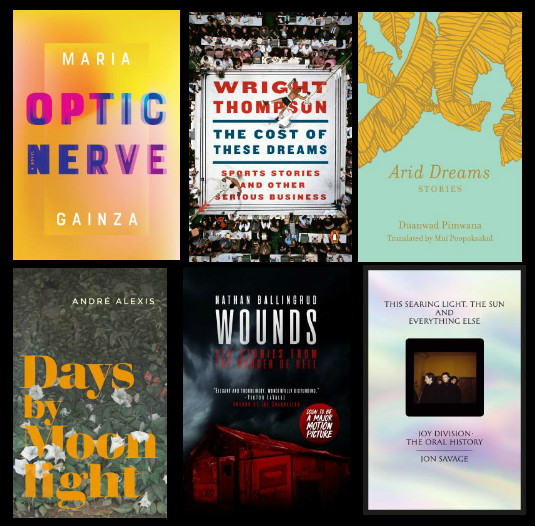
Rumor has it that it’s now springtime. And while we’re tempted to volley forth a “spring cleaning? more like spring reading, am I right?”-level salvo, it may be the wiser course of action to simply make with the book recommendations. And thus, here were go, with April’s notable titles encompassing everything from fictional trips into the uncanny to nonfiction that may bring clarity to a frustrating world. Here are some of the books that have caught our eye this month.

Carson Vaughan, Zoo Nebraska
(April 1, Little A)
Carson Vaughan’s Zoo Nebraska centers around the small town of Royal, where for twenty years a zoo became an unexpected landmark for a place that had experienced a series of setbacks. Vaughan’s book traces the formation of the zoo that gave the book its title, and of the conflict that led to its undoing.
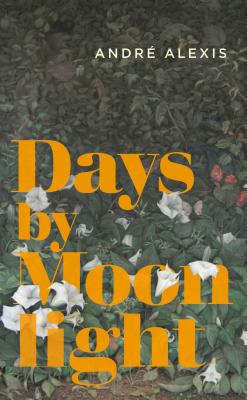
André Alexis, Days By Moonlight
(April 2, Coach House Books)
The latest novel by award-winning novelist André Alexis continues in his tradition of blending stylistically bold structures with deeply accessible stories. In this case, it’s about a literary road trip that takes a turn for the uncanny — and winds up delving into several bleak aspects of Canada’s history.
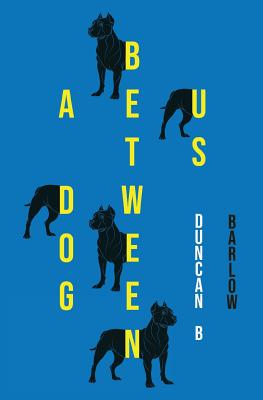
duncan b. barlow, A Dog Between Us
(April 2, Stalking Horse Press)
Following his surreal 2017 novel The City, Awake, duncan b. barlow has returned with a new novel in a more realistic mode. This novel’s narrator grapples with grief and loss, even as he struggles with personal connections that may be outside of his capacity to rectify. The result is a haunting and resonant psychological novel.

Elizabeth Kleinhenz, Germaine: The Life of Germaine Greer
(April 2, Scribe)
Elizabeth Kleinhenz’s biography of Germaine Greer provides a comprehensive look at a significant and sometimes contentious figure in the history of second-wave feminism. Germaine explores both her intellectual evolution and her personal life, creating a thorough portrait of its subject.
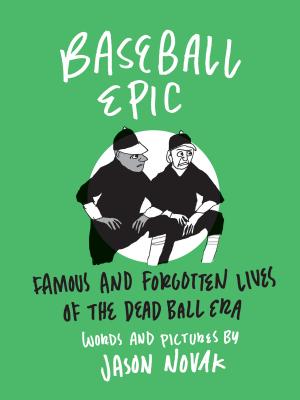
Jason Novak, Baseball Epic
(April 2, Coffee House Books)
Jason Novak’s new book explores a particular period in baseball’s history: the time when one ball was used for the entirety of a game. In words and images, Novak provides a window into the personalities and untold histories of the sport — coinciding perfectly with a new season beginning.

Mark Alan Stamaty, MacDoodle St.
(April 2, New York Review Comics)
This new edition of Mark Alan Stamaty’s MacDoodle St. collects the comics that ran in the Village Voice in the late 1970s, as well as a new afterword which brings some context to the work that preceded it. Stamaty’s comic is inventive, satirical, and abounds with energy; reading it now hearkens back to the era of its creation while also anticipating the present moment all too well.

Wright Thompson, The Cost of These Dreams
(April 2, Penguin Books)
Wright Thompson has earned numerous accolades for his writing about sports, and for his ability to explore the psyches and personas of numerous prominent figures in their field. This book explores the breadth of his work, serving as an ideal introduction to explain just why he’s one of the nation’s best sportswriters.
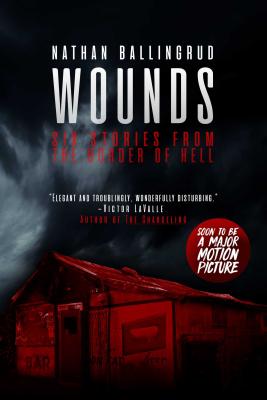
Nathan Ballingrud, Wounds
(April 9, Saga Press)
Nathan Ballingrud’s earlier collection, North American Lake Monsters, found an excellent balance between psychological realism and unnerving forays into the uncanny. His new collection Wounds offers more of the same: six stories that get under your skin both literally and metaphorically.
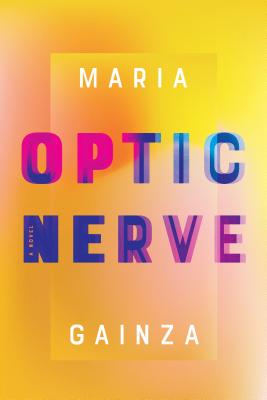
María Gainza, Optic Nerve; translated by Thomas Bunstead
(April 9, Catapult)
One of the most difficult tasks in fiction is conveying the aesthetics of a particular character. That’s precisely what María Gainza has done in her newly-translated book Optic Nerve, which follows the life of a narrator with an intense interest in art, and blends observations on artists’ lives and work with events within her own world.
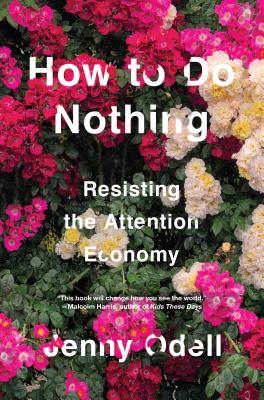
Jenny Odell, How to Do Nothing
(April 9, Melville House)
Given the technological panopticon in which we live, living a life outside of various forms of surveillance can feel nearly impossible. Jenny Odell’s new book offers an exploration of this phenomenon, as well as a means by which readers may be able to see a light at the end of this particular tunnel, and a path towards a better way of living.

Duanwad Pimwana, Bright; translated by Mui Poopoksakul
(April 9, Two Lines Press)
Duanwad Pimwana’s Bright is the first novel by a Thai woman to be translated into English, and this month offers Anglophone readers two opportunities to experience her work. Bright follows a young boy abandoned by his father, and tells the story of how he makes his way in the world, surviving under tenuous circumstances.

Duanwad Pimwana, Arid Dreams; translated by Mui Poopoksakul
(April 16, Feminist Press)
The other book from Duanwad Pimwana appearing in translation this month offers readers a foray into her short fiction. Pimwana focuses on questions of routine, the quotidian, and repression; here, readers can trace the fault lines created by the interconnected networks found in her fiction.
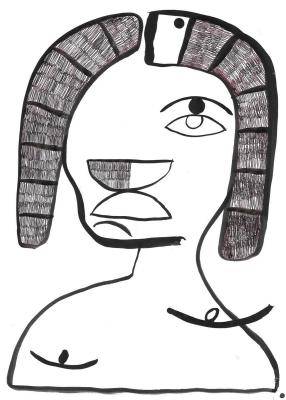
Devendra Banhart, Weeping Gang Bliss Void Yab-Yum
(April 23, featherproof books)
Odds are good that if you’re reading these words, you’re familiar with Devendra Banhart’s music. Now, you can also explore Banhart’s first foray into poetry, a surreal and expansive work that expands Banhart’s body of work into a bold new arena.
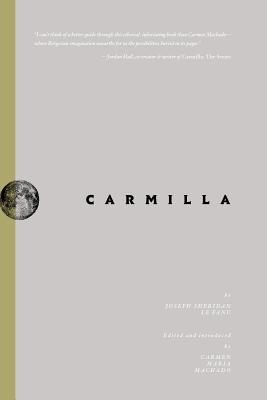
Joseph Sheridan Le Fanu, Carmilla; edited by Carmen Maria Machado
(April 23, Lanternfish Books)
Joseph Sheridan Le Fanu was known for his tales of the supernatural and the weird; his short novel Carmilla has had a cult following over the years, and helped spark a host of vampire stories in the decades to follow — including Bram Stoker’s Dracula. This new edition, edited by Carmen Maria Machado, makes the case for this work’s literary importance, as well as its eminent readability.

Jon Savage, This Searching Light, The Sun and Everything Else
(April 23, Faber & Faber)
Jon Savage is one of the best music journalists writing today; Joy Division remains one of the most influential rock bands of our time. Thus, this blend of author and subject offers the potential for a thoroughly immersive reading experience — and one which may well inspire numerous revisitations of the band’s discography.
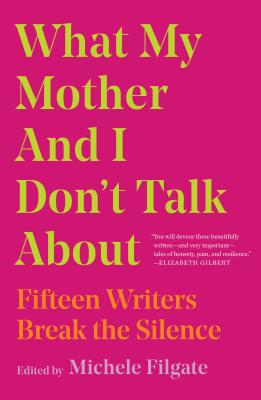
Michele Filgate, editor, What My Mother and I Don’t Talk About
(April 30, Simon & Schuster)
This new anthology from editor Michele Filgate offers a fantastic lineup, including contributions from Carmen Maria Machado, Alexander Chee, Melissa Febos, and Kiese Laymon. At the core of the book, as the title suggests, are the limitations of one particular familial connection — and the fifteen contributors offer an impressive breadth of perspectives on that subject, from the harrowing to the unexpected.
All cover artwork and release dates are subject to change.
Follow Vol. 1 Brooklyn on Twitter, Facebook, and sign up for our mailing list.
